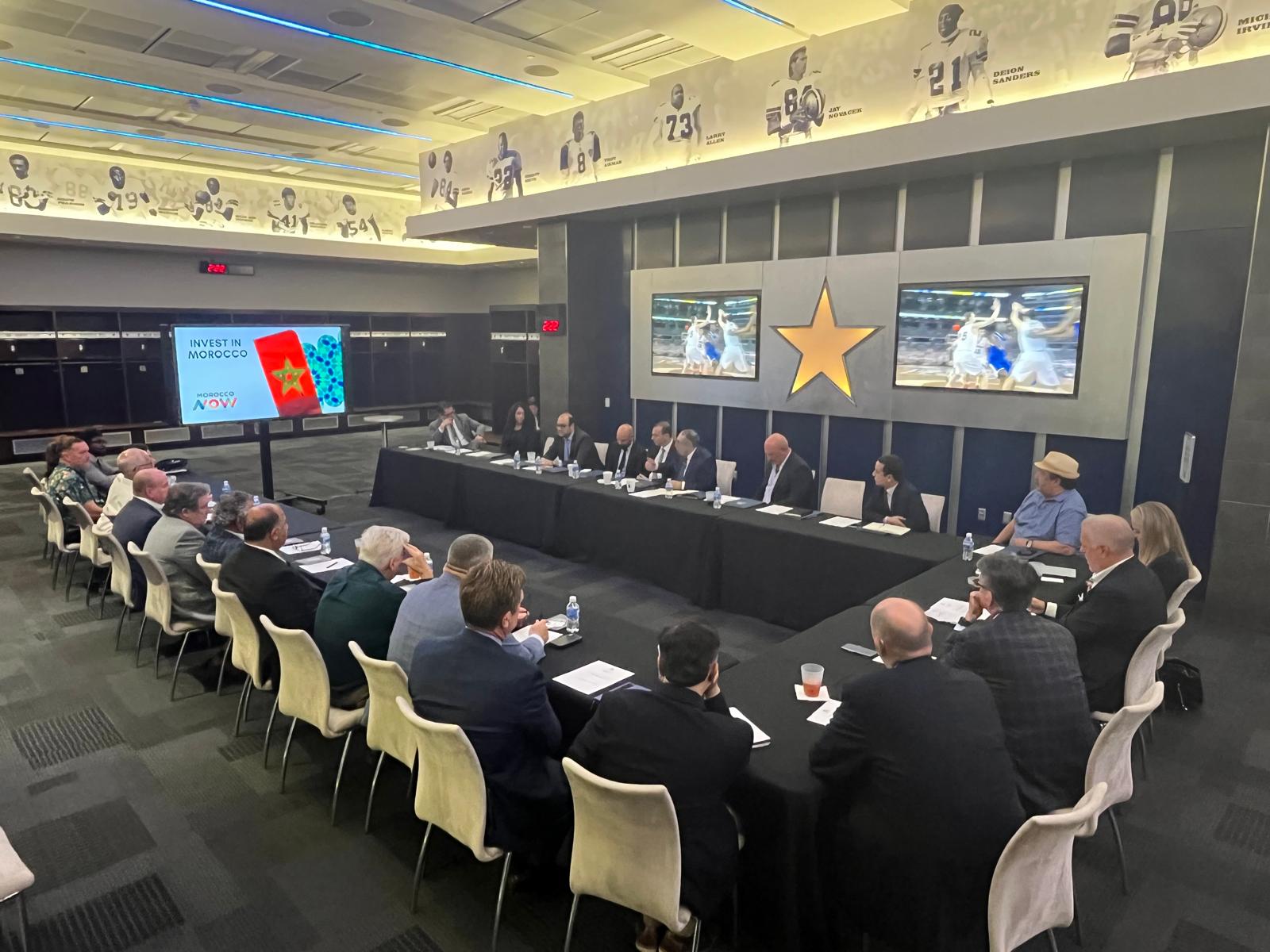
Investment opportunities in Morocco outlined during US-Africa Business Summit
Investment opportunities in Morocco and the strength of the strategic partnership binding the Kingdom and the United States were highlighted during a roundtable discussion held in the city of Arlington, Texas (South), on the sidelines of the U.S.-Africa Business Summit which runs through May 9 in Dallas.
Addressing the panel, Morocco’s ambassador to the United States, Youssef Amrani, underlined the scope and depth of the exceptional relationship between Rabat and Washington, and stressed the growing opportunities of the free trade agreement between the two countries, in a context where the will required to move forward and the increased commitment to broaden the prospects of the relationship “are at the heart of the approaches and joint visions shared by our two countries.”
“Thanks to the policies implemented in line with the High Royal Guidelines, Morocco is at the same time a privileged ally, a credible interlocutor and a trusted partner which, beyond its favorable economic investment climate, benefits from a very particular capacity to operate transversally within the eminently strategic framework of its relations with the United States,” the diplomat pointed out.
This capacity enshrines an alliance of more than 247 years enriched by several political, diplomatic, economic, and security breakthroughs which establish the dynamism of this inclusive, efficient, and continually growing partnership, said the ambassador.
According to Mr. Amrani, this dynamic is set to continue and strengthen at a time when “Africa is gradually establishing itself as a new driver of global growth and is moving closer to a continental free trade area.”
“This is likely to open new perspectives into the pivotal role of the Kingdom, giving new dimensions to the link that it has always represented to bring together, in a concerted and responsible approach, the African depths of its Atlantic facade”, he underlined.
The royal Atlantic initiative is the most eloquent representation of this unwavering commitment through which the Kingdom seeks to promote spaces of shared prosperity where fruitful collaboration and genuine solidarity ensure more inclusive development and security for all, the diplomat stated.
For his part, the general director of the Moroccan Agency for the Development of Investments and Exports (AMDIE), Ali Seddiki, noted, during the roundtable, held at the emblematic Dallas Cowboys stadium, that the agency today offers investment opportunities in cutting-edge sectors, including electric mobility, aeronautics, and renewable and decarbonized energies.
Arlington’s Mayor Jim Ross highlighted the strong potential of this Texas city. “As one of the most diverse large cities in America, Arlington has so much culture and opportunity to offer those looking to live and work here,” he said.
“Our city attracts businesses of all sizes, not only because of its highly skilled workforce and ideal location, but also because we value partnerships and innovation,” the mayor added.
“We dream big here in Arlington and look forward to a long and fruitful relationship with our Moroccan partners,” he stressed.
This meeting was an opportunity to highlight the major investment opportunities in Morocco and to discuss with several leading Texan stakeholders, representing a very wide range of the most strategic sectors for the Morocco-U.S. relationship, including aeronautics, agri-food, energy, and new technologies.
Thanks to the free trade agreement (FTA) between Rabat and Washington, which will soon mark its 20th anniversary, the United States is today Morocco’s 3rd trading partner. The Kingdom is for its part the 4th trading partner of the United States in Africa.
Last year, U.S. investments accounted for more than 30% of total foreign direct investments in Morocco, placing the United States as the leading investor.
Bilateral trade has also increased significantly to 5 billion dollars in 2023, compared to 925 million before the FTA treaty was enacted in 2005.
